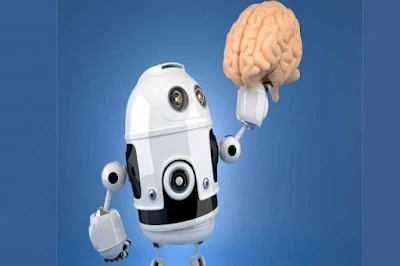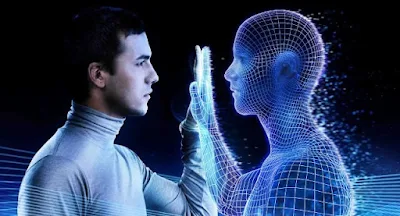What effects will AI have on human intelligence?
How artificial intelligence is going to revolutionize the way we think: a look into the future of our mind
Artificial Intelligence (AI) has burst into our reality with unmatched force, raising fascinating and sometimes disturbing questions about the future of human intelligence.
 |
| What effects will AI have on human intelligence? |
A look at the present: artificial intelligence and its intersection with human intelligence
At present, AI has demonstrated exceptional abilities in specific tasks, from pattern recognition to massive data processing. However, current artificial intelligence is limited and narrow in its focus, lacking the versatility and deep understanding that characterize the human mind. True transformation is on the horizon with the search for Artificial General Intelligence (AGI), capable of emulating the breadth and flexibility of human thought.
Ethical and philosophical challenges: the integration of the IAG in society
As we move closer to the possibility of IAG, major ethical and philosophical challenges arise. How will the IAG affect our perception of intelligence? To what extent will we be willing to delegate cognitive tasks to non-biological entities? These questions raise a deep dialogue about the very essence of what it means to be intelligent and aware.
Changes in the nature of work: automation and new creative opportunities
IAG-driven automation could radically change the nature of work. Routine tasks could be taken over by IAG systems, freeing humans to focus on more creative and strategic work. While some fear job losses, others see an opportunity to unleash creativity and innovation, freeing humanity from the shackles of work monotony.
Increased cognitive efficiency: the human-machine symbiosis
One of the most optimistic predictions about the influence of AI on human intelligence is the increase in cognitive efficiency. The IAG could act as an extension of our mental capacity, providing instant access to vast and complex information. This human-machine symbiosis could accelerate the problem-solving process and amplify our ability to address scientific, technological and social challenges.
Transforming education: adaptation to individual learning styles
Education is another fertile ground for IAG integration. Imagine a virtual mentor who understands and continually adapts to your learning needs. The IAG could revolutionize education by personalizing the learning process, providing instant feedback and adapting study materials to meet the specific needs of each student. This would not only optimize learning, but could also democratize access to quality education.
Ethical challenges and regulation: navigating a sea of crucial decisions
As we venture into the uncharted territory of the IAG, ethics and regulation become imperative. How do we regulate the autonomous decision making of non-biological entities? How do we ensure equity and avoid unequal concentration of power? Society will face the crucial task of establishing strong ethical frameworks and regulations to guide the development and implementation of the IAG.
Integration in human identity: the border between the biological and the artificial
The integration of IAG into our lives could go beyond improving cognitive skills. The possibility of brain-machine interfaces raises the fundamental question of how willing we are to merge our identity with technology. Could we reach a point where the line between biological and artificial intelligence blurs, challenging our traditional perceptions of what it means to be human?
Conclusion: the co-evolution of human intelligence and AI
On the horizon of artificial intelligence, we see a fascinating co-evolution between the human mind and intelligent machines. The IAG represents a potentially transformative milestone, but its impact will depend on how we confront the ethical, social and philosophical challenges ahead. Collaboration between human and artificial intelligence could be the key to unlocking a future where both thrive and empower each other, shaping a world where intelligence, in all its forms, is a positive and constructive force.





Comments
Post a Comment